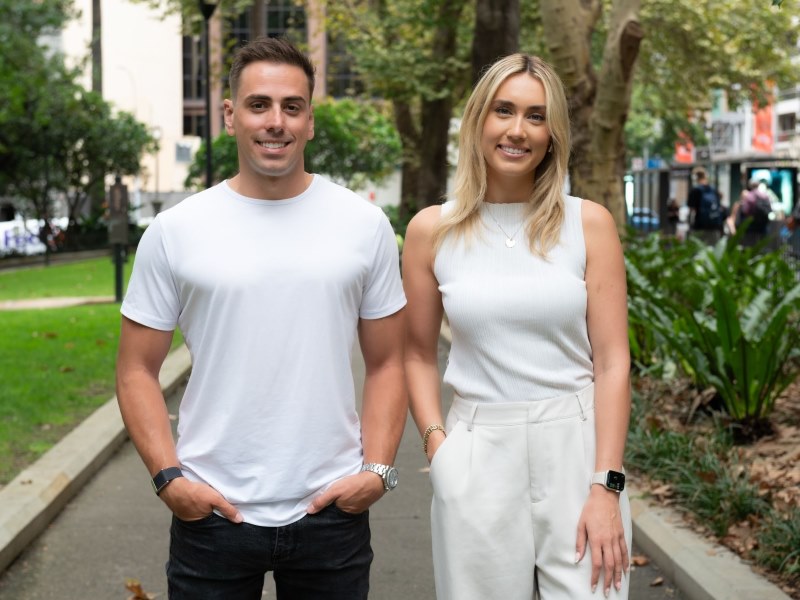Australia’s largest startup community has a new leader, with Majella Campbell promoted to chief executive of Fishburners this week ahead of its move out of the CBD.
Ms Campbell takes the reins from Martin Karafilis who steps down on Friday after more than two years as CEO.
“Fishburners has always been about pushing boundaries and supporting founders to succeed,” he said. “With the startup ecosystem evolving rapidly, now is the right time for a leadership transition.”
The leadership change comes ahead of a government decision to ship the Sydney Startup Hub, where Fishburners and the state’s other main accelerators are based, out of the CBD and into the Tech Central precinct.

An impending Minns government announcement on new innovation policy, including its support for startups, also looms over the sector.
Ms Campbell has risen up Fishburners over almost five years and was most recently its chief operating officer.
She said the community is entering a “new era” on strong foundations for growth.
“Our mission remains steadfast — empowering founders with the resources, networks, and support they need to build world-changing companies,” Ms Campbell said.
Australia’s Advanced Robotics for Manufacturing Hub (ARM Hub) this week announced the appointment of former Australian Chief Scientist, Dr Cathy Foley, to its board.
Dr Foley, a renowned physicist advised the Albanese government as it made strategic bets on quantum computing, overhauled science priorities and launched Australia’s first robotics strategy.
“She is both ambitious and strategic about how we can grow Australia’s industrial capability underpinned by scientific research and technology adoption,” ARM Hub CEO Professor Cori Stewart said.
“Her commitment to growing new and existing industries in Australia will advance ARM Hub’s mission to build the nation’s sovereign manufacturing capability.”
Dr Foley has also joined the CSIRO board since stepping down as Australia’s chief scientist at the end of 2024.
Education minister Jason Clare has named an interim leaders of a new Australian Tertiary Education Commission, which an Albanese government would formally establish and fully operationalise later this year if re-elected.
The commission was recommended by the landmark Universities Accord to oversee its generational reforms that aim to help dramatically boost the number of tertiary educated Australians and improve research outcomes.
The interim Chief Commissioner will be the Accord panel’s chair Professor Mary O’Kane, and she will be supported by Accord panel members Jobs and Skills Australia Commissioner, Barney Glover and Distinguished Professor Larissa Behrendt.
“I am getting the band back together,” Mr Clare said.
“The people who wrote the Accord will help to make it real.”
Life sciences innovation accelerator MTPConnect has appointed Professor Ian Meredith AM as non-executive director
Professor Meredith is renowned in the medical technologies sector and has served as global chief medical officer at Boston Scientific and as a clinical and interventional cardiologist, as Professor and Director of MonashHeart, at Monash Health.
Dr Nick Cerneaz, an inaugural director of MTPConnect, is retiring from the MTPConnect board after serving for nine years.
Scandal plagued WiseTech founder Richard White took back control of the software giant this week, four months after stepping down from the board and his role as chief executive amid several allegations against him
Mr White had reportedly threatened to sue WiseTech’s independent directors over the potential release of an outside review into some of the allegations. Four directors resigned in response and Mr White, who controls 37 per cent of WiseTech, was appointed executive chairman.
The company said Mr White is leading its product development and growth strategy as it searches for a new CEO.
But the software giant now faces the prospect of a regulator investigation, with ASIC confirming this week it had begun preliminary inquiries.
Professor Kimberlee Weatherall and Professor Terry Flew have been announced as co-directors of the new Centre for AI, Trust and Governance that launched this week at the University of Sydney.
The centre will research AI’s societal, legal, and ethical implications; train PhD graduates and weigh in on the changing policy debate.
“Artificial intelligence presents us with a global set of social challenges… It is vitally important that questions of trust, transparency, and accountable governance are placed at the forefront of public debate and policymaking,” Professor Flew said.
The inaugural leader of the Advanced Strategic Capabilities Accelerator (ASCA) Professor Emily Hilder, who left the role this year, has landed as Defence’s First Assistant Secretary Digital Capability.
Prior to ASCA, Professor Hilder had worked only in the Defence’s research arm, the Defence Science and Technology Group.
Australian Army Brigadier Hugh Meggitt took over running ASCA this month as part of a shakeup that will see the accelerator move closer to Defence’s operational arm.
Do you know more? Contact James Riley via Email.

